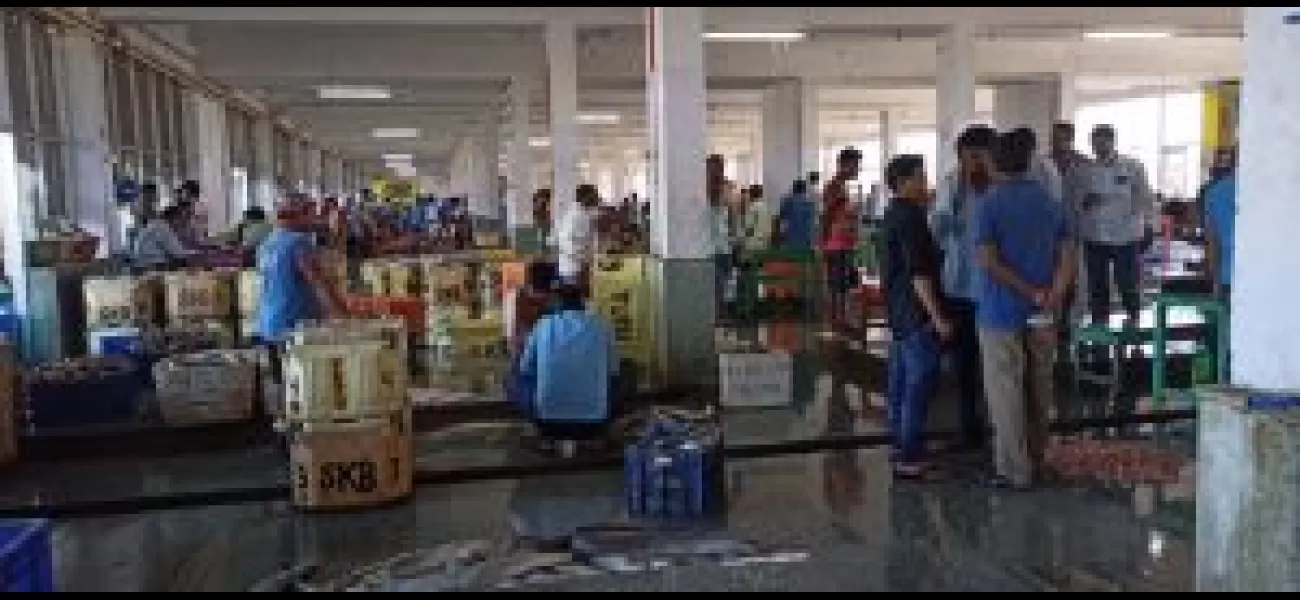US reluctant to buy fish from ocean
USA hesitant to import sea fish from Paradip due to poor quality, processing, and transport delays. Exports to foreign countries also affected.
June 24th 2024.

Paradip, a bustling harbour in Jagatsinghpur district, has recently been facing a challenge from the United States of America. The US, which is a major seafood market, has shown a lack of interest in importing sea fish from not just Paradip, but also all fishing harbours in India. This is due to a decline in fish quality, over-processing, and delays in transport. The export of sea fish is a significant source of earnings for not just Odisha, but also other eastern coastal states of India. The news has sparked concerns among the fishermen and fish producers in Paradip, who rely on this trade for their livelihood.
According to reports from the Marine Products Export Development Authority (MPEDA), an organization under the Union Ministry of Commerce and Industry, the US imported seafish worth 2,549.15 million dollars in the financial year 2023-24. However, the MPEDA has raised red flags over the declining fish quality in all fishing harbours in India, as well as the practices of processing and transporting the fish. They have urged for a change in the standard operating procedure, from production to export, in order to improve the quality of fish.
In the financial year 2023-24, India exported around 17,81,602 MT of sea fish, earning Rs 60,523,89 crore in foreign exchange. However, during a meeting organized by the MPEDA at the fishing harbour in Paradip, the issue of plummeting demand for fish was brought up. Archiman Lahiri, the deputy director of MPEDA, revealed that the US has expressed concerns over the quality of fish being exported from India. They have given a deadline of March 2025 for improvements to be made, or else they will impose a total ban on the import of fish from India.
The MPEDA has suggested that the Odisha Marine Fish Producers’ Association, the apex body of fishing trawlers and fish producers in Paradip, should work on reducing the time between processing and transport. Currently, it takes at least a week for a fishing boat to return to the harbour with the catch, and then the fish are stored in cold storage until they are taken to the auction hall. From there, agents from various export firms procure the fish and load them onto vehicles bound for Bhubaneswar, where the processing plant is located. The entire process takes anywhere from eight to 14 hours, which can result in a decline in the quality of fish.
Manas Padhiari, an agent, explained that the Food Safety and Inspection Service of the US government has been rejecting consignments after inspecting them upon arrival in their country. This is due to the prolonged time between processing and transport, which can lead to a decline in fish quality. To address this issue, Lahiri has suggested setting up a processing plant right inside the fishing harbour in Paradip. This would reduce the time between processing and transport, ensuring that the quality of fish remains intact. Srikant Parida, the president of OMFPA, has also urged the Fisheries department of the state or central government to take steps in establishing a processing plant in Paradip.
According to reports from the Marine Products Export Development Authority (MPEDA), an organization under the Union Ministry of Commerce and Industry, the US imported seafish worth 2,549.15 million dollars in the financial year 2023-24. However, the MPEDA has raised red flags over the declining fish quality in all fishing harbours in India, as well as the practices of processing and transporting the fish. They have urged for a change in the standard operating procedure, from production to export, in order to improve the quality of fish.
In the financial year 2023-24, India exported around 17,81,602 MT of sea fish, earning Rs 60,523,89 crore in foreign exchange. However, during a meeting organized by the MPEDA at the fishing harbour in Paradip, the issue of plummeting demand for fish was brought up. Archiman Lahiri, the deputy director of MPEDA, revealed that the US has expressed concerns over the quality of fish being exported from India. They have given a deadline of March 2025 for improvements to be made, or else they will impose a total ban on the import of fish from India.
The MPEDA has suggested that the Odisha Marine Fish Producers’ Association, the apex body of fishing trawlers and fish producers in Paradip, should work on reducing the time between processing and transport. Currently, it takes at least a week for a fishing boat to return to the harbour with the catch, and then the fish are stored in cold storage until they are taken to the auction hall. From there, agents from various export firms procure the fish and load them onto vehicles bound for Bhubaneswar, where the processing plant is located. The entire process takes anywhere from eight to 14 hours, which can result in a decline in the quality of fish.
Manas Padhiari, an agent, explained that the Food Safety and Inspection Service of the US government has been rejecting consignments after inspecting them upon arrival in their country. This is due to the prolonged time between processing and transport, which can lead to a decline in fish quality. To address this issue, Lahiri has suggested setting up a processing plant right inside the fishing harbour in Paradip. This would reduce the time between processing and transport, ensuring that the quality of fish remains intact. Srikant Parida, the president of OMFPA, has also urged the Fisheries department of the state or central government to take steps in establishing a processing plant in Paradip.
[This article has been trending online recently and has been generated with AI. Your feed is customized.]
[Generative AI is experimental.]
0
0
Submit Comment





